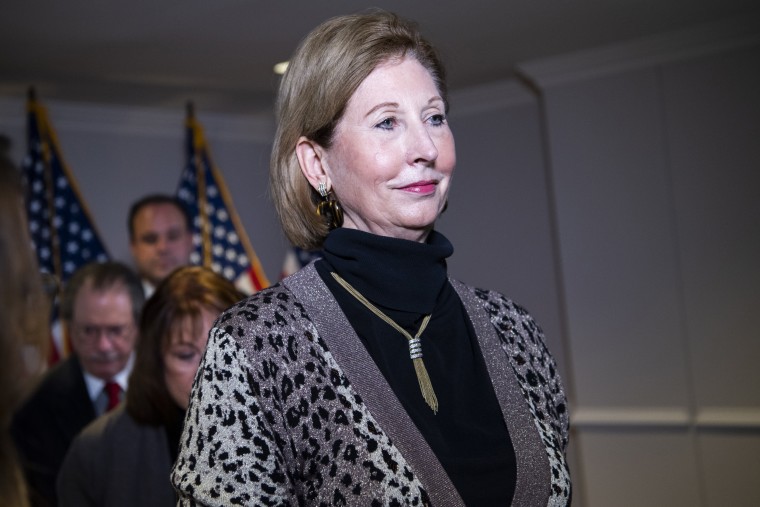Throughout his presidency, Donald Trump had an amusing habit of pretending not to know people close to him. Late last year, there was a classic of the genre.
Conservative media figure Hugh Hewitt asked the former president in December about Sidney Powell’s many troubles, and while Trump didn’t literally say, “Sidney who?” he came pretty close.
“She didn’t work for me,” Trump replied, adding, “She didn’t work for me as per se.... And I disagree with some of the things that she’s doing, and some of the statements that she made, as you know.”
At face value, it was easy to understand why the Republican was so eager to throw Powell under the bus: She was at the center of multiple scandals when Trump made the comments. But even at the time, this was among the former president’s most ridiculous lies: Powell not only worked directly for him, she was also a member of his post-election inner circle.
The Washington Post reported late last year that Powell and Michael Flynn even tried to convince Trump to appoint her as some kind of special counsel, which would’ve granted her bizarre crusade against the election results “the imprimatur and resources of the federal government.”
As it turns out, Powell and Flynn didn’t just try to convince Trump to appoint her as some kind of special counsel; we now know that they largely succeeded.
During yesterday’s Jan. 6 committee hearing, the public learned of an utterly bonkers White House meeting, held late last year, in which Powell, Flynn, and Patrick Byrne fought vehemently against White House lawyers, including Eric Herschmann and Pat Cipollone. During yesterday’s presentation, Democratic Rep. Jamie Raskin explained:
“Certain accounts of this meeting indicate that President Trump actually granted Ms. Powell security clearance and appointed her to a somewhat ill-defined position of special counsel.”
Powell herself told the House select panel that Trump asked the White House counsel whether the then-president had the authority to make Powell a special counsel. When Cipollone answered in the affirmative, according to Powell, Trump said, “Ok, you know, I’m naming her that and I’m giving her security clearance.”
Cipollone told the committee that Powell may have been under the impression that she’d been appointed, but as far as the then-White House counsel was concerned, this was an absurd idea: Cipollone effectively killed the appointment by not doing the necessary paperwork.
Part of what makes this amazing is that a sitting president effectively gave an order that his own team scuttled.
But I’m also struck by the underlying problem. In November 2020, Powell — a proponent of a great many strange ideas — peddled a hilarious conspiracy theory about Trump’s defeat, implicating George Soros, “communist money,” the Clinton Foundation, Venezuela, antifa, Cuba, possibly China, and Hugo Chavez, who’d been dead for several years.
A month later, Trump thought it’d be a good idea to make Powell, who was ultimately sanctioned by a federal court, a special counsel, responsible for pursuing crackpot anti-election ideas with considerable federal power.
So much for the Republican’s “she didn’t work for me” line.

